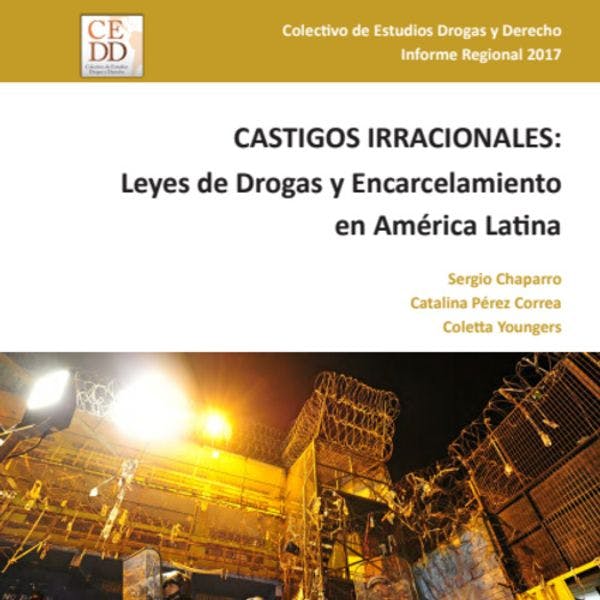Des peines irrationnelles : La législation sur les drogues et l’emprisonnement en Amérique latine
Le CEDD souligne le clivage entre le discours pro-réforme dans la région et la criminalisation croissante des délits liés aux drogues. Pour en savoir plus, en anglais, veuillez lire les informations ci-dessous.
Abonnez-vous à l'Alerte mensuelle de l'IDPC pour recevoir des informations relatives à la politique des drogues.
Although Latin America has led the global debate on reforming drug policy and has promoted the need to consider alternatives to incarceration with regard to drug offenses, the use of criminal law and sentences that deprive people of their liberty has worsened in recent years. Thus, there is a significant gap between the reformist discourse of governments and their efforts to move toward less repressive responses, with a focus on public health, human rights and human development. Such efforts have been erratic with only a few exceptions. In some countries, such as Ecuador, these efforts have even been rolled back.
In the majority of countries in the region, the percentage increase in the population incarcerated for drug offenses has been much higher than that of the population imprisoned for other offenses, and the data shows that these trends continue to accelerate. In addition, in several of the countries studied, incarceration for these offenses is the main factor explaining growth in the prison population. Through country studies, the CEDD investigations show that there exists a large number of people incarcerated for low-level, non-violent drug offenses who would benefit from alternatives to incarceration, especially those who are disproportionately affected by incarceration.
Keep up-to-date with drug policy developments by subscribing to the IDPC Monthly Alert.
